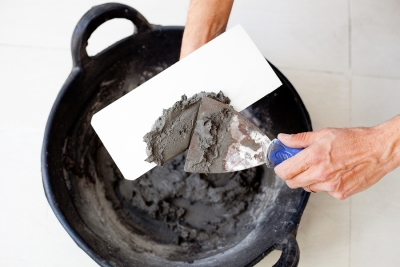Why Do Basement Leaks Happen?
Why is There a Leak in Your Basement?
As a homeowner, one of the things you least want to deal with is a leaky basement. Leaks in the basement can cause a world of headaches, damaging furniture and other belongings, ruining carpet and flooring, and leading to much larger consequences, like mold, mildew, and decay. Left to its own devices, water in a basement can even compromise the structural integrity of your house! Unfortunately, basement leaks are all too common. By staying on top of basement waterproofing, though, you can protect your home and everything in it. The first step to preventing and dealing with basement leaks is understanding why they happen.
Common Causes of Basement Leaks
- Water often leaks into the basement through a crack in the foundation. Cracks in the foundation wall can lead to water in the basement, but what causes foundation cracks? Hydrostatic pressure, stemming from the buildup of water along the outside of your foundation walls, can lead to cracks in the concrete. To relieve this pressure, you’ll need the help of a professional basement waterproofing company, to drain the water away from your foundation and prevent future buildup. Of course, cracks in the foundation wall can also be due to structural issues, so it’s important to have any cracks inspected and addressed by a professional.
- Plumbing problems can lead to leaky basements. Sometimes, when warm, humid air meets the cooler temperatures in the basement, you’ll have a problem with condensation, leading to a damp basement. If you notice water in your basement, though, it’s more likely to be caused by plumbing leaks inside your house. Stop using the water in your home until you determine whether something is leaking, checking the showers, sinks, toilets, appliances, and pipes. Additionally, make sure the drain that allows water to exit your home is not clogged. An experienced plumber can help you find solutions if the issue is a plumbing leak.
- Your downspouts may be directing water into your basement. Gutters and downspouts are designed to channel water away from your home, carrying it away from your foundation. If your gutters are clogged or broken, or your downspouts are missing, not functioning properly, or misdirecting the water, you can end up with water in your basement. In fact, if your downspouts are depositing water against your foundation wall, this can lead to the kind of hydrostatic pressure that causes the foundation cracks discussed earlier.
- Patchwork is a temporary solution that can lead to future issues. If you’ve moved into an older home that has had problems with leaks in the basement before, and those leaks have been patched or sealed without the root problem being addressed, you’re likely to have the same leaks appear again. Look for patches and address them as soon as possible, because preventive maintenance is more cost-effective than water damage repair.
- A faulty drainage system may be to blame. To prevent basement leaking, several different measures are often taken, to create a drainage system and keep the basement dry. This can involve a perimeter drain, also known as a French drain or drain tile, designed to direct water away from the house, and a sump pump, which pumps water out of the basement and away from the foundation. Used together, these tools can make an effective system for preventing basement leaks. However, if the perimeter drain is clogged, the water can end up in the wrong place, causing problems. Similarly, if the sump pump is broken or malfunctioning, water can back up into the basement.
- Look to your landscaping for answers about your basement leaks. Sometimes, taking out a “thirsty” tree in the backyard can lead to flooding in the basement. More commonly, though, the grading of your landscaping is to blame. Correctly graded lots have land that slopes away from the foundation, rather than towards it. However, if the property is graded incorrectly, water can drain in the wrong direction and accumulate around the foundation, leading to basement leaks. Improving the grading can be the answer to addressing your leaky basement.
What to Do About a Leaky Basement
Once you know why your basement is leaky, you can take steps to repair existing leaks and prevent future leaking. The best way to handle basement leaks? Turn to a company with the necessary expertise and skills to properly waterproof your basement. If you are looking for a Maryland company with extensive knowledge and years of experience in basement waterproofing and more, look to Budget Waterproofing. At Budget Waterproofing, we’ve got more than 55 years of experience servicing both commercial and residential customers throughout Maryland. We’re proud of our craftsmanship and confident in our skills, and all of our technicians are fully licensed and insured. We also hold an A+ rating with the Better Business Bureau of Maryland. Whether you need foundation repair, basement waterproofing, a drainage system, crawl space waterproofing, sump pump maintenance, mold removal, or egress window installation, we’ve got you covered, with the experience and skills necessary to improve your basement and protect your property today and in the future. For more information, call 410.690.4970 or contact us through our website.

